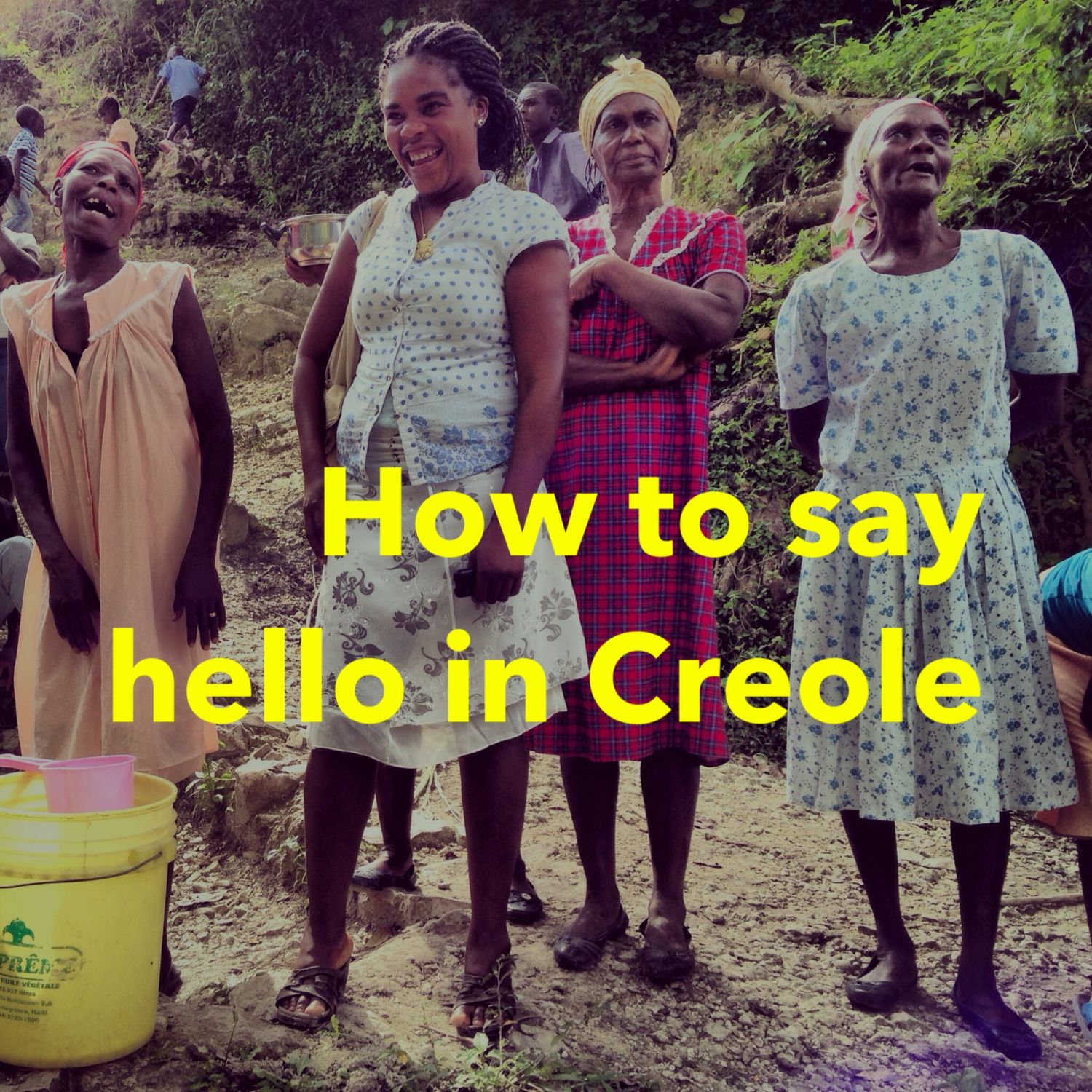I am on my way to my 5th visit to Haiti and I am totally embarrassed to say that I don’t know how to say ‘hello’ in Creole.
Seriously. How lame is that?
I know how to say ‘bonjour’ of course, and knowing a bit of French can get me by. But in Haiti, the majority of people speak Haitian. A patois, partially French, partially local and all Haitian.
I have good reason as to why I don’t know how to say hello in Haitian. I travel to many different countries in my work. Much of my work is seminar style. I am in and out quickly. I don’t stay long in one place. Over the last couple of years alone it would have helped if I could speak French, Spanish, Filipino, Japanese and Swahili. I can’t learn them all!
Sounds convincing right?
The problem is that I can always find a good excuse not to learn some of the language. In doing so, I join myself to a special group of international workers. A group I am not proud to belong to.
Around the world I have met long term workers who have lived in their countries for years, occasionally decades, and they still don’t know the language. This, they assure me, is not a problem. There are plenty of local people who want to learn English. Translators are cheap. They have systems in place and look at what they are accomplishing. Ultimately, they tell me, they are too busy with their successful projects to stop and learn the language.
Still sound convincing?
I wonder, isn’t there more to life than accomplishing tasks and getting projects done. What about your evenings and weekends? Who do you hang out with then? Other expats only? The few who speak your language? Is this simply all about accomplishing tasks and getting projects done?
Knowing another language is more than understanding the code for your own language. It is a way to understand the soul of a community. Something different happens when you chat after the meeting. When you can walk through the community and discover your neighbours concern for their son. The grandfather who is ill. When you can come back on the weekend and hear what happened that week.
When Supriya and I travelled to Newfoundland soon after our marriage I found myself in the role of an interpreter. As the kitchen party went on later into the evening, my uncles grabbed guitars and sang the old songs, the stories of our history were trotted out again “Pops cup” gets told and retold, growing every time.
The dialect grew broader as the speech clipped along faster and faster. Stories evoked gales of laughter that I needed to interpret to Supriya as she was forced to smile and nod.
It was a lot more than than translating a few words. The language was the culture. The culture is the language. I need to be able to say hello, I know better.
By the way, “bonjou” is how you say hello in Creole.
Do you think learning the language matters that much?
Mark Crocker

